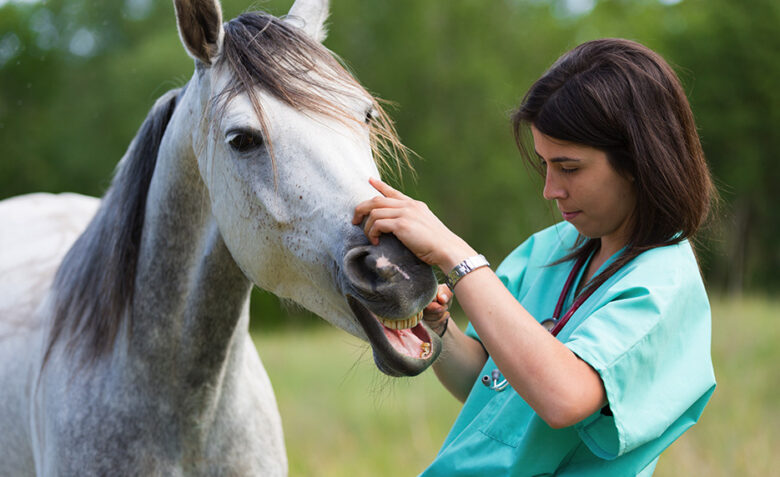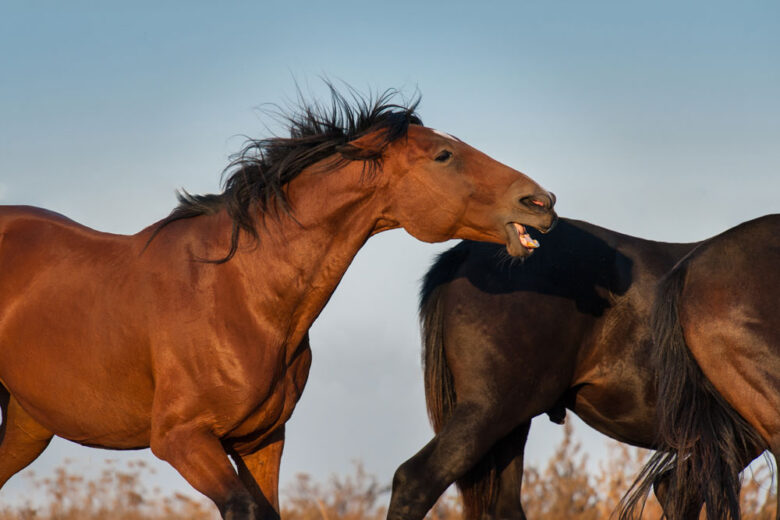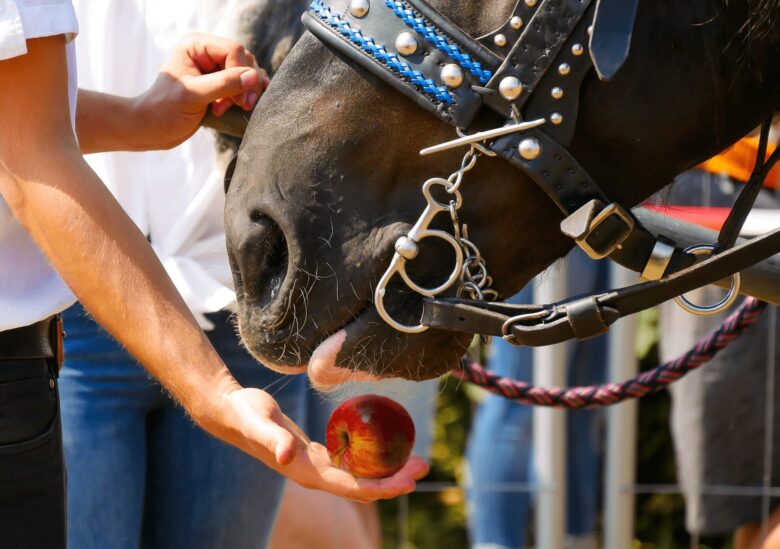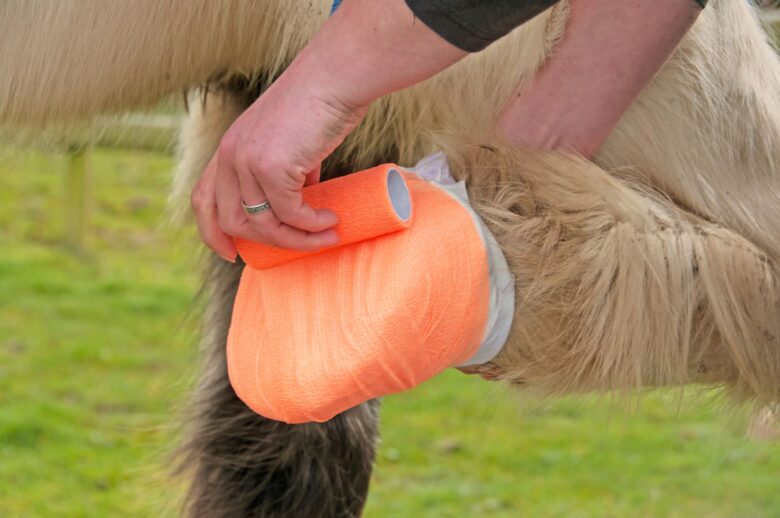Horses, like any other animals, thrive when they are cared for proactively. It goes beyond providing food and water because horses need extensive preventive care. Preventive care is one of the factors in maintaining a healthy and happy horse.
Understanding the fundamentals of keeping your horse in top shape contributes to their well-being and a strong and lasting bond between you and your equine companion. If you’re here looking for a guide on how to care for your horse properly, then you’re in the right place.
Contents
Nutritional Foundations
Much like humans, horses have specific dietary needs crucial for their overall health. It’s essential to comprehend what constitutes a balanced diet for them. A well-rounded diet ensures they receive the necessary nutrients for optimal health.

Source: horseandhound.co.uk
Proper Feeding Practices
Horses are herbivores whose diet primarily consists of forage, such as hay and grass. It’s crucial to provide a consistent and appropriate high-quality forage to meet their nutritional requirements.
A balanced diet incorporates forage, grains, and supplements. Grains should be given in moderation and tailored to your horse’s needs. Consult your veterinarian to determine the right balance for your horse’s age, weight, and activity level.
Supplements and Vitamins
Certain essential nutrients, such as vitamins and minerals, are vital in maintaining your horse’s health. Because vitamin deficiencies or imbalances can lead to various health issues, a good formula like the ones from EquiNutritive’s horse supplement can bridge the nutritional gaps in your horse’s diet.
Common supplements include omega-3 fatty acids for coat health or joint supplements for older horses. Still, always consult with your vet before introducing supplements to your horse’s diet.
Routine Veterinary Care
Routine veterinary care is important in ensuring the well-being of your horse. It’s an essential component of being a responsible horse owner.

Source: ed2go.com
Vaccinations
Vaccinations are crucial for preventing diseases affecting your horse’s health. Key vaccines include those for tetanus, rabies, and equine influenza. Your veterinarian will recommend a vaccination schedule based on your horse’s age, health, and local disease prevalence.
Deworming
Parasite infestations can severely affect your horse’s health. So, regular deworming is necessary to control and prevent internal parasites. Ask your vet for appropriate deworming protocols based on age, pasture management, and regional parasite prevalence.
Regular Health Checks
Regular health checks are crucial for maintaining your horse’s well-being without invasive procedures or stress.
Monitoring Vital Signs
Monitoring your horse’s vital signs is a simple yet effective way to gauge their overall health. Understanding the normal range for temperature, pulse, and respiration lets you quickly identify potential health issues.
Familiarize yourself with the normal TPR values for your horse. Deviations from these baseline values can indicate illness or stress, prompting timely intervention from your veterinarian.
Dental Care
Horses’ teeth continually grow, and improper dental health can lead to issues like discomfort, weight loss, and difficulty eating. Regular dental check-ups are essential for maintaining your horse’s overall well-being.
Schedule routine dental check-ups with a qualified equine dentist or veterinarian. They will address uneven wear, sharp points, or dental abnormalities, ensuring your horse can chew and digest food properly.

Source: horseillustrated.com
Recognizing and Addressing Illness
Paying attention to your horse’s behavior is crucial for early illness detection. Changes in eating habits, lethargy, or altered social interactions can signal underlying health issues.
Regularly inspect your horse for physical symptoms like lameness, swelling, or changes in coat condition. Prompt identification and veterinary intervention can prevent the progression of potential health problems.
Stable and Pasture Management
A well-maintained stable and pasture contributes significantly to your horse’s overall health. Ensure your horse has ample space, proper bedding, and a clean living environment to minimize the risk of respiratory issues and injuries.
Regular pasture rotation prevents overgrazing, encourages natural grazing behavior, and reduces the risk of parasite infestations. Good pasture management practices promote your horse’s physical and mental well-being.
Protection from the Elements
A shelter protects your horse from harsh weather conditions such as extreme heat, cold, or precipitation. Ensure your horse has access to a sheltered area, whether a stable or a run-in shed, to maintain their comfort and well-being.
Extreme weather can challenge your horse’s health. Implement strategies such as blanketing in cold weather, providing shade in hot weather, and ensuring a constant supply of clean water to help your horse cope with weather extremes.

Source: hunterstables.co.uk
Exercise and Mental Stimulation
Regular exercise is essential for maintaining a healthy weight and promoting cardiovascular health in horses. Tailor the exercise routine to your horse’s age, fitness level, and intended use, whether light riding, lunging, or turnout.
Horses thrive on mental stimulation, and incorporating varied activities into their routine keeps them engaged and content. Simple activities like introducing new toys, changing the scenery during rides, or providing social interaction contribute to their mental well-being.
Hoof Care
Regular farrier visits are essential for maintaining healthy hooves. The condition of a horse’s hooves directly impacts their comfort and soundness. Routine trimming or shoeing prevents overgrowth, imbalances, and potential lameness.
Proper Shoeing Practices
When Horses Need Shoes
Not all horses require shoes, but some may benefit based on workload, terrain, and hoof condition. Consult with your farrier and veterinarian to determine if and when your horse needs shoeing.
Maintaining Healthy Hooves
In addition to regular farrier visits, maintaining healthy hooves involves picking out their feet daily, keeping them clean and dry, and promptly addressing any signs of infection or discomfort.
Emergency Preparedness
The unexpected can happen, and being ready for unforeseen circumstances is a non-negotiable aspect of responsible ownership. Here’s how you can prepare:

Source: thesprucepets.com
Creating a Horse First Aid Kit
A well-prepared horse first aid kit is vital in handling emergencies. Include items like bandages, an antiseptic solution, a thermometer, and contact information for your veterinarian. Regularly check and restock the kit to ensure its readiness.
Knowing When to Call the Vet
Understanding when to seek professional veterinary assistance is crucial. While a well-equipped first aid kit helps with minor injuries, it’s essential to recognize situations that require immediate attention, such as severe injuries, colic, or respiratory distress.
Keep Your Horse Healthy and Happy
Committing to regular monitoring and care establishes a strong foundation for a fulfilling and enduring relationship with your horse. By staying proactive in preventive care, you enhance your horse’s quality of life and foster a bond built on trust, understanding, and mutual well-being.
